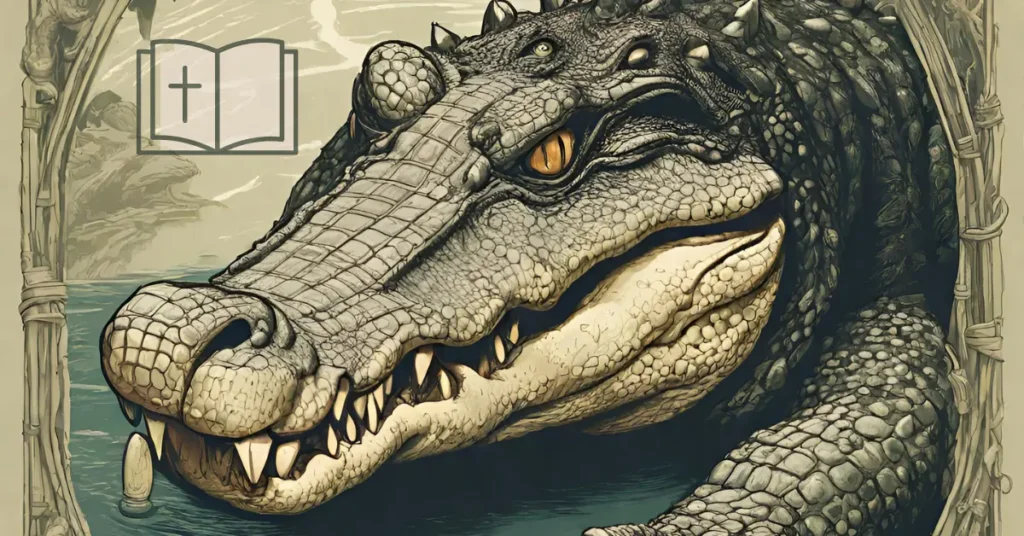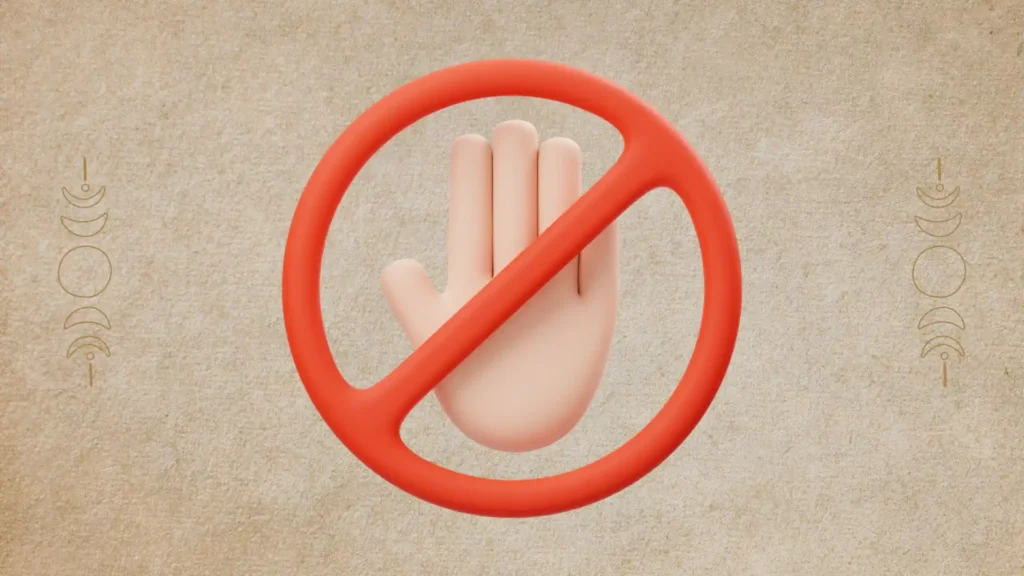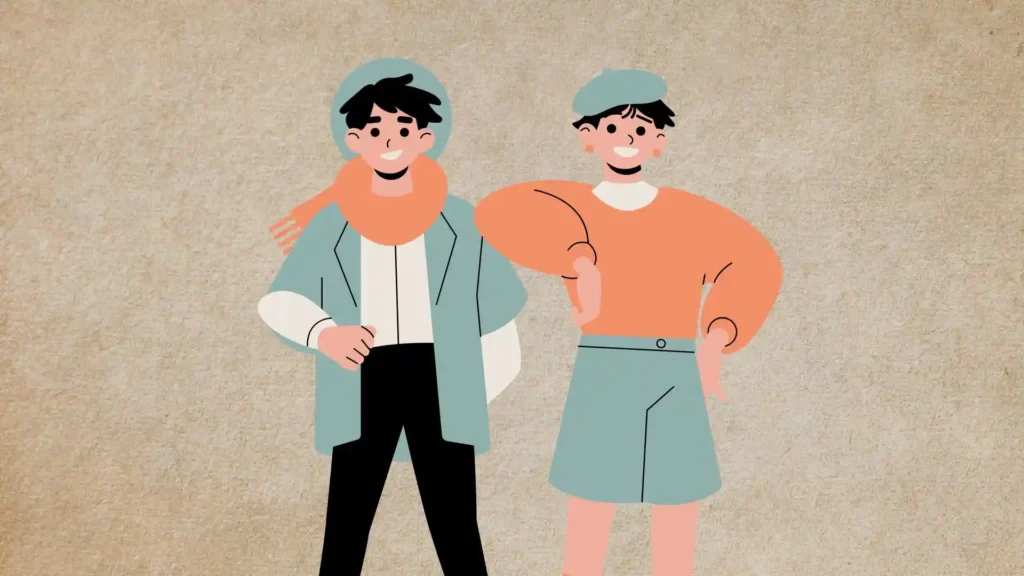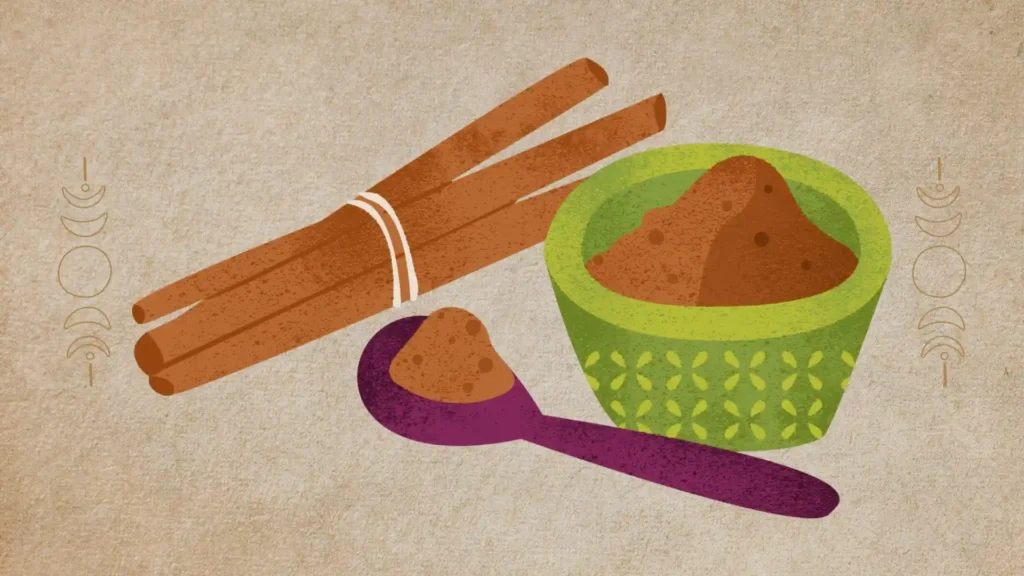“In the Bible, creatures resembling crocodiles symbolize immense power and divine control. Though not named directly, their characteristics reflect spiritual truths about challenges, chaos, and God’s sovereignty.”

When we think about animals in the Bible, the crocodile may not be the first that comes to mind. Yet, the symbolism of “crocodile in the bible” is deep and meaningful. This article explores how crocodiles, or creatures like them, are used in the Bible to teach us about strength, danger, and God’s power.
In the Bible, creatures that resemble crocodiles are mentioned in a few key passages. They’re often used to represent something bigger and more profound. For example, the Leviathan in Job 41, thought by some to be a crocodile, shows us a creature of immense power, one that only God can control.
As we journey through this article, we’ll look at where and how these fascinating creatures appear in the Bible. We’ll explore what they symbolize and how these ancient texts use their imagery to convey messages that were important then and still speak to us today.
The Crocodile Bible Verse in Job 41
“The Leviathan in Job 41, often likened to a crocodile, represents formidable power and challenges that only God can conquer, illustrating His ultimate authority over all creation.”
In the scriptures, the Leviathan is a creature that captures the imagination, and many scholars associate it with a crocodile. Job 41 offers a vivid description, “Can you pull in Leviathan with a fishhook or tie down its tongue with a rope? (Job 41:1 NIV).” This imposing figure challenges our understanding of power and control, particularly in the face of the divine.
Crocodile in the Bible | The Mighty Leviathan
The Leviathan’s portrayal in Job 41 is more than just an account of a fearsome beast; it’s a metaphor for the overwhelming challenges we face in life. Verses like, “Its back has rows of shields tightly sealed together; each is so close to the next that no air can pass between (Job 41:15-16 NIV)” evoke an image of an unconquerable force, reminding us of the trials that seem insurmountable in our lives.
Job’s Dialogue and the Crocodile
Within Job’s dialogue, the reference to Leviathan isn’t just about the creature’s physical attributes. It’s a deeper reflection on the relationship between man and God, between the created and the Creator. It poses questions about our own strength and the much greater power of God.
What Does a Crocodile Symbolize in the Bible?
“Crocodiles in the Bible, symbolized by creatures like Leviathan, represent significant challenges and spiritual battles, emphasizing God’s power over the most formidable forces of nature.”
While the Bible does not mention crocodiles explicitly, the characteristics of similar creatures, like the Leviathan, give us a window into what crocodiles might symbolize. These creatures often represent overwhelming power and challenges, as well as the sovereignty and authority of God over all creation.
In biblical narratives, creatures resembling crocodiles are used to symbolize life’s great challenges and the spiritual battles we face. The imagery of a powerful, nearly untamable beast reflects the trials and tribulations that can seem overwhelming to us.
Crocodiles and Divine Power
The representation of crocodile-like creatures in the Bible also speaks to the immense power of God. Just as a crocodile is a dominant force in its environment, these biblical references remind us of God’s ultimate authority over even the most formidable aspects of creation.
Ezekiel’s Metaphor: Pharaoh as a Crocodile
“Ezekiel compares Pharaoh to a crocodile-like creature, symbolizing his arrogance and eventual downfall, a metaphorical illustration of human pride against divine judgment.”
The book of Ezekiel presents a compelling metaphor, likening the Pharaoh of Egypt to a creature resembling a crocodile. This image in Ezekiel 29:3-5 serves to illustrate not only Pharaoh’s perceived might but also his impending downfall due to arrogance.
Pharaoh’s Comparison to a Crocodile in the Bible
Ezekiel 29:3-4 poignantly declares, “This is what the Sovereign Lord says: I am against you, Pharaoh king of Egypt, you great monster lying among your streams. You say, ‘The Nile is mine; I made it for myself.’” Here, Pharaoh is depicted as a dominant creature of the Nile, much like a crocodile, symbolizing his power and self-assumed invincibility.
The Downfall of the Pharaoh
This metaphorical imagery in Ezekiel captures Pharaoh’s eventual defeat, illustrating the temporary nature of his power. The comparison to a crocodile emphasizes the dangers of pride and the certainty of divine justice, aligning with the overarching theme of “crocodile in the bible” as a symbol of both earthly power and its limitations under divine rule.
The Crocodile Spirit in the Bible
The metaphor of the “crocodile spirit bible” emerges distinctly in Ezekiel’s portrayal of Pharaoh as a creature resembling a crocodile. This imagery, rich in spiritual symbolism, conveys messages about pride, power, and divine authority.
Crocodile Spirit in Ezekiel’s Prophecy
Ezekiel 29:3-4 states, “This is what the Sovereign Lord says: I am against you, Pharaoh king of Egypt, you great monster lying among your streams. You say, ‘The Nile is mine; I made it for myself.’ But I will put hooks in your jaws and make the fish of your streams stick to your scales.” This vivid portrayal likens Pharaoh to a powerful crocodile, symbolizing his arrogance and impending downfall, an interpretation fitting the “crocodile spirit bible” theme.
Lessons from the Crocodile-like Imagery in the Bible
The story of Pharaoh as a crocodile in Ezekiel not only depicts his dominance but also his vulnerability to God’s power. It serves as a spiritual lesson that earthly authority, much like a crocodile’s might, is always under God’s ultimate control. This narrative adds depth to our understanding of “are crocodiles in the bible” by showing how their symbolic use conveys profound truths about human nature and divine sovereignty.
Isaiah and the Serpent-like Leviathan
Isaiah 27:1 introduces another fascinating creature, often associated with a crocodile: the Leviathan. This serpent-like being symbolizes chaos and is seen as a representation of God’s ultimate control over disorderly forces.
Leviathan in Isaiah: A Crocodile-like Creature
Isaiah 27:1 says, “In that day, the Lord will punish with his sword—his fierce, great and powerful sword—Leviathan the gliding serpent, Leviathan the coiling serpent; he will slay the monster of the sea.” This passage gives a vivid image of a formidable creature, akin to a crocodile, that God alone can conquer. It speaks to the theme of “crocodile in the bible kjv,” where such creatures are used to symbolize larger spiritual battles.
Symbolism of the Leviathan in Biblical Context
In Isaiah, Leviathan’s depiction carries a deep symbolism. It’s not just a creature of fear but also a metaphor for chaos and evil that God ultimately reigns over. This aligns with the idea of “what does the bible say about crocodiles” in a metaphorical sense, where such creatures represent the chaos that is present in the world but under divine authority.
Crocodile Dreams in the Bible: Interpreting Isaiah’s Imagery
The imagery of crocodile-like creatures in Isaiah not only depicts physical might but also holds significant dream symbolism. This interpretation aligns with the concept of “crocodile dreams bible,” where such dreams might reflect on underlying spiritual messages or battles.
Understanding the Dream Symbolism of Crocodiles
In biblical times, dreams were often seen as divine messages. A crocodile appearing in a dream, akin to the formidable Leviathan in Isaiah, might symbolize hidden fears, spiritual threats, or challenges that need to be confronted. This interpretation resonates with “crocodile dream meaning bible,” offering a lens to view our own spiritual journey.
The Leviathan in Dreams: A Biblical Perspective
The presence of a Leviathan or a crocodile-like creature in dreams, as referenced in Isaiah, could be indicative of God’s power over the chaos and challenges in one’s life. It speaks to the broader question of “what does crocodile mean in the bible” in the context of dreams, symbolizing both the threats we face and the divine strength available to overcome them.
Understanding Crocodile Imagery: The Psalms’ Perspective
The Psalms offer a unique view on creatures resembling crocodiles, using them as symbols to convey messages about God’s power and the natural order. This perspective helps deepen our understanding of the broader theme “crocodile in the bible.”
The Role of Crocodile-like Creatures in Psalms
The imagery used in Psalms, particularly in relation to Leviathan, aligns with “nile crocodile bible” interpretations. It shows these creatures as representations of chaos and disorder, which are ultimately under God’s control. This serves as a reminder of the natural order and balance within creation.
Symbolic Meanings of Crocodiles in the Psalms
In the context of the Psalms, the crocodile-like Leviathan becomes a symbol of challenges and obstacles that are overcome by divine intervention. This ties back to the question, “what does the crocodile symbolize in the bible,” emphasizing themes of triumph and divine authority over seemingly insurmountable challenges.
FAQ Section: Addressing Common Queries
Are Crocodiles Mentioned in the Bible?
While the word “crocodile” is not used explicitly, creatures like the Leviathan in Job and Isaiah are often thought to represent crocodiles or crocodile-like beings. These references carry deep symbolic meanings related to power, chaos, and divine sovereignty.
What Does Crocodile Mean in the Bible?
In biblical symbolism, a crocodile, often represented by creatures like Leviathan, symbolizes immense power, chaos, and the presence of formidable challenges. It also represents God’s power over all creation, including the most fearsome creatures.
Is Crocodile Meat Mentioned in the Bible?
The Bible does not specifically mention crocodile meat. However, the dietary laws in Leviticus generally categorize reptiles as unclean, which would likely include crocodiles.
Does the Bible Recommend Eating Crocodiles?
The Bible does not provide specific guidance on eating crocodile meat. However, under Old Testament law, reptiles were considered unclean and not recommended for consumption.
What is the Biblical Significance of Dreaming About Crocodiles?
Dreaming about crocodiles in a biblical context could symbolize facing formidable challenges or spiritual battles. It might also represent hidden fears or threats that need to be addressed with faith and reliance on divine strength.
Conclusion: The Impact of Crocodile Imagery
The exploration of crocodile imagery in biblical texts, while not explicitly mentioning the animal, reveals a rich layer of symbolism. Through creatures like Leviathan, the Bible presents themes of overwhelming power, moral and spiritual challenges, and the ultimate authority of God. This indirect reference to crocodiles allows us to reflect on the diverse ways the scriptures communicate deeper truths.
The biblical narratives use powerful and often intimidating creatures to symbolize various aspects of human experience and divine interaction. These representations, akin to the crocodile’s fearsome and commanding presence, invite readers to ponder the complexities of life, the struggles we face, and the omnipotent power of God to reign over all. They remind us that in the face of life’s Leviathans, be they challenges or fears, there lies a higher power that guides, protects, and ultimately triumphs.
Suggested Further Reading Material
To gain a more comprehensive understanding of animal symbolism in the Bible and its implications, consider exploring these resources:
- “All the Animals of the Bible Lands” by George Cansdale: Delve into the world of biblical fauna, understanding their roles and representations in scriptural narratives.
- “Dictionary of Biblical Imagery” by Leland Ryken, James C. Wilhoit, and Tremper Longman III: This extensive work offers a deep dive into the rich imagery found throughout the Bible.
- “The Divinity Code to Understanding Your Dreams and Visions” by Adam F. Thompson and Adrian Beale: A guide for those seeking to interpret the language of dreams and visions within a biblical and spiritual context.
- “The Bible Among the Myths: Unique Revelation or Just Ancient Literature?” by John N. Oswalt: This insightful book compares the Bible with ancient mythologies, illuminating its unique place in religious and historical literature.



